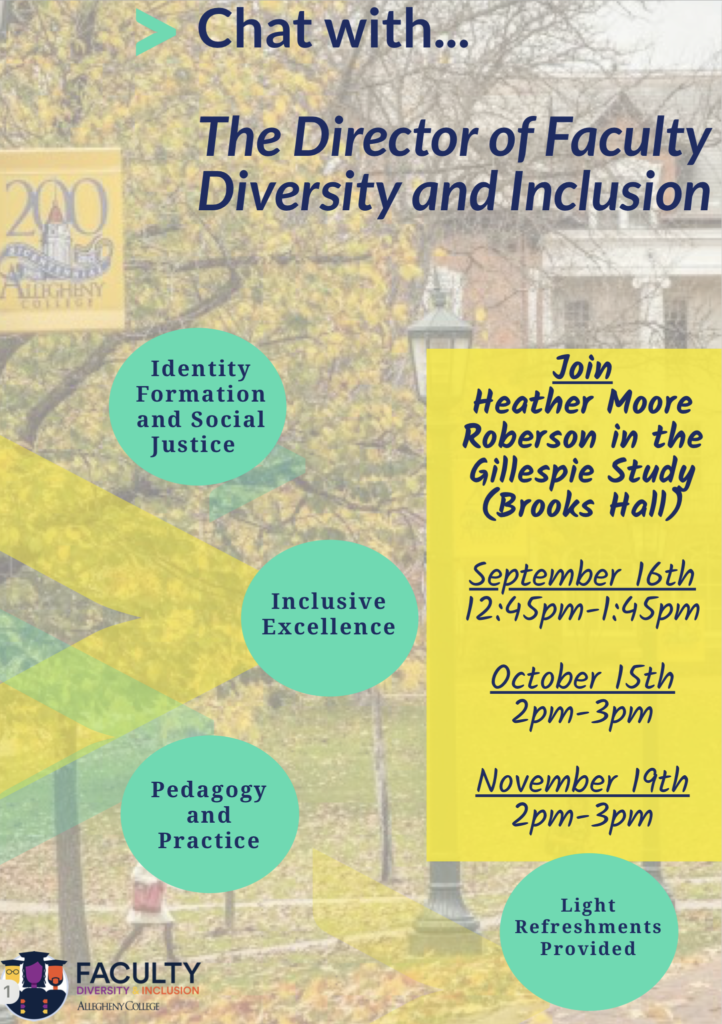For easy reference, below is a copy of the May 2022 email sent to faculty about our NCFDD institutional membership.
Dear Faculty Colleagues,
We are pleased to announce that Allegheny College has joined the National Center for Faculty Development & Diversity (NCFDD) as an Institutional Member. The NCFDD is a nationally-recognized, independent organization that provides online career development and mentoring resources for faculty at all stages of their career. We encourage all faculty to join the NCFDD through our institutional membership.
They provide a variety of virtual programs and resources including:
- Weekly Monday Motivator
- Monthly Core Curriculum Webinars
- Monthly Guest Expert Webinars
- Access to Multi-Week Courses
- Private Discussion Forum for peer mentoring, problem solving & moderated writing challenges
- Monthly accountability buddy matches
- Access to 14 day writing challenges
- Access to the Member Library that includes past webinars, referrals, and readings.
To claim your FREE institutional membership, please complete the following steps:
- Go to https://www.facultydiversity.org/join
- Choose Allegheny College from the drop down menu
- Select “Activate my Membership”
- Complete the registration form using your institutional email address (allegheny.edu)
- Go to your institutional email to find a confirmation/welcome e-mail. Click “Activate Account” in the email.
This institutional membership is sponsored by the Provost’s Office with input from the Directors of Faculty Diversity and Faculty Development. If you have any questions about the membership, please contact Heather Moore Roberson. If you have any technical questions, please email NCFDD at Membership@FacultyDiversity.org.
We hope that you enjoy the benefits of the Institutional Membership.
Sincerely,
Heather Moore Roberson, Director of Faculty Diversity & Inclusion
Rachel Weir, Director of Faculty Development
Ron Cole, Provost and Dean of the College
Angela Haddad, Incoming Provost and Dean of the Faculty
